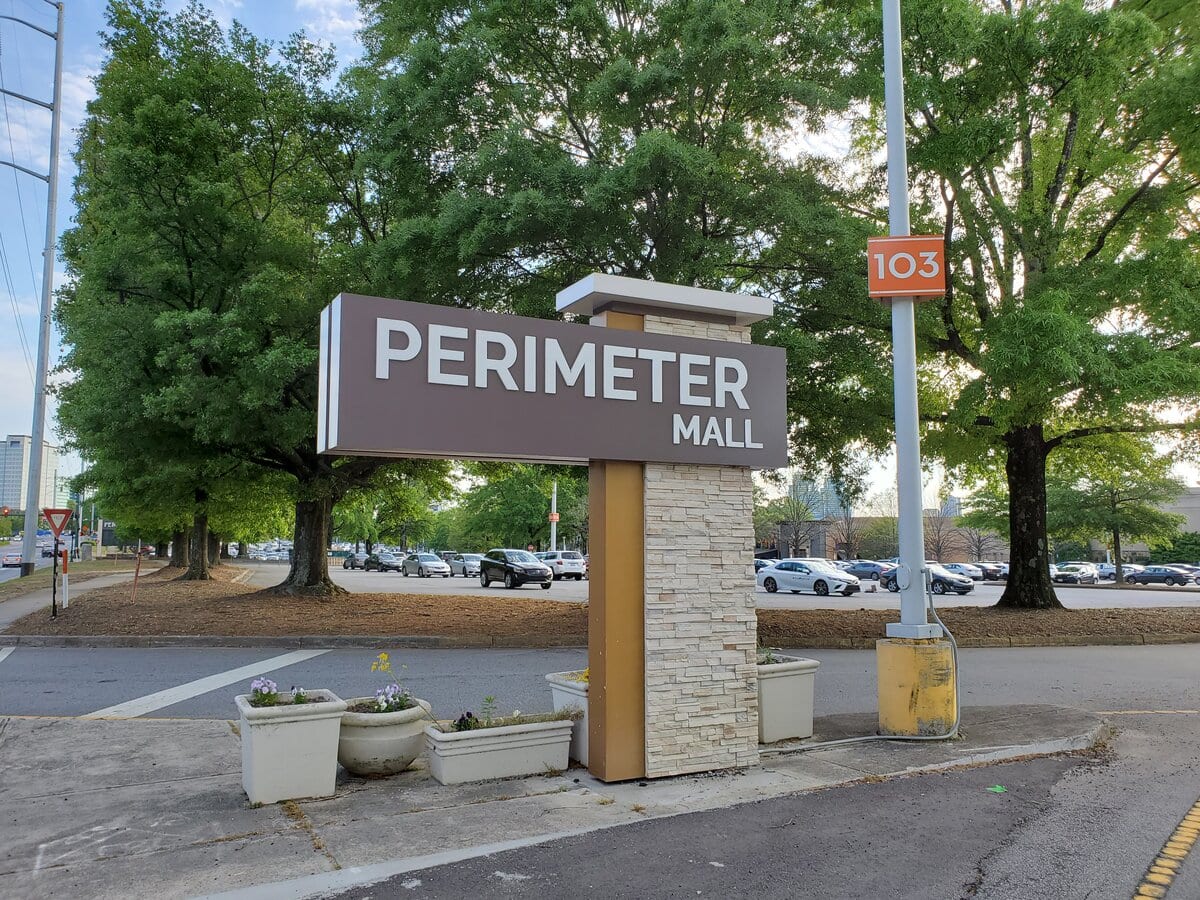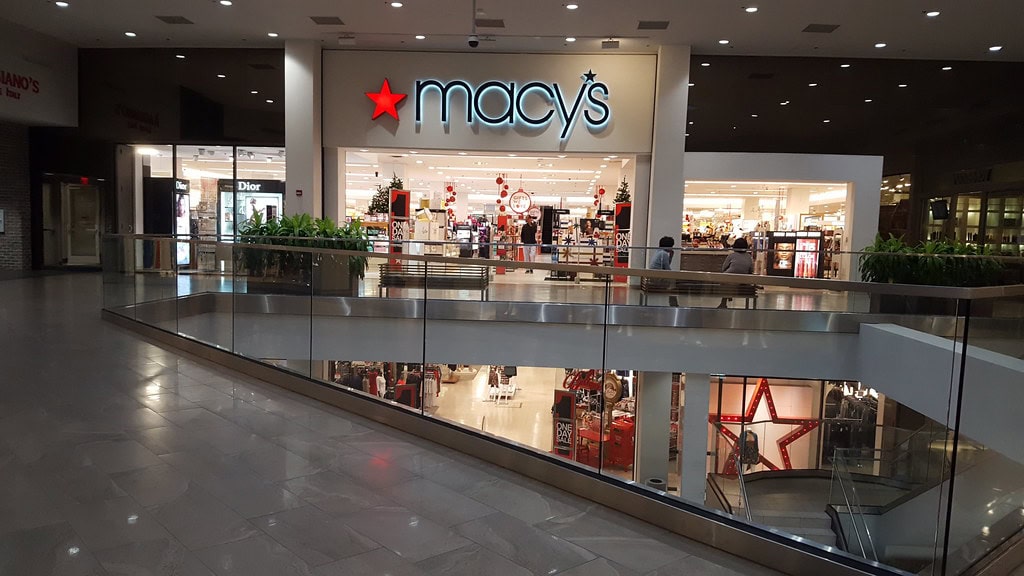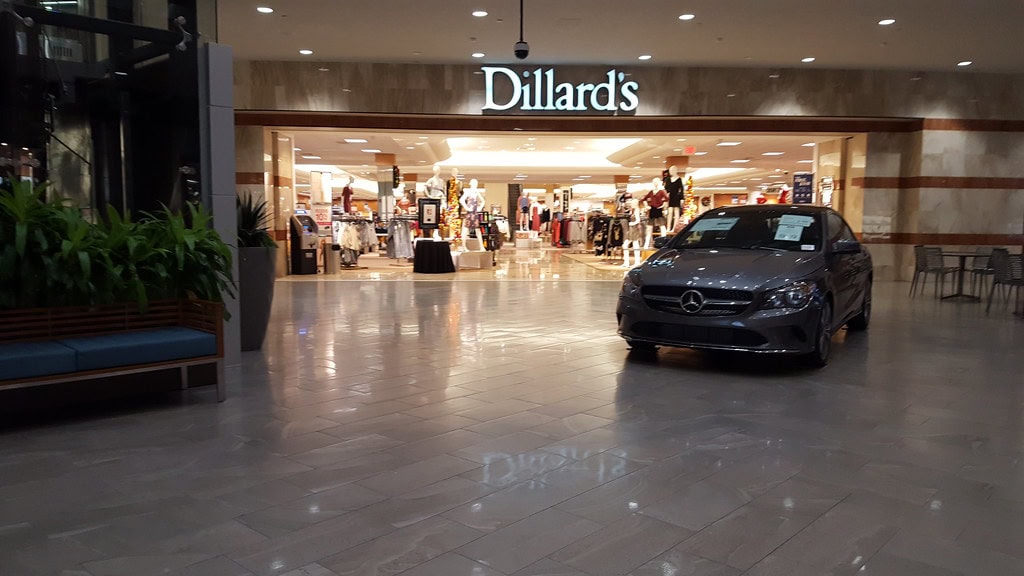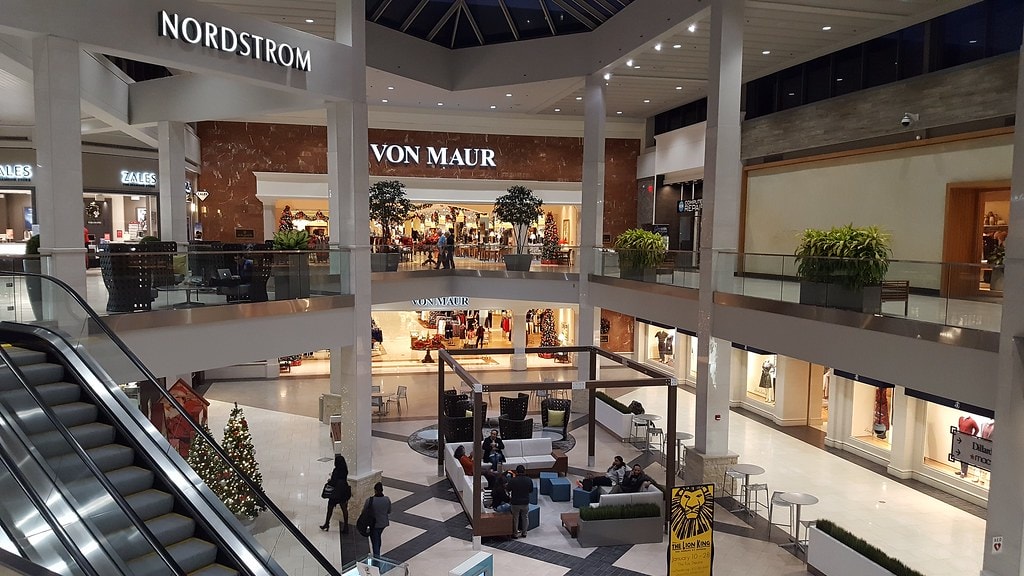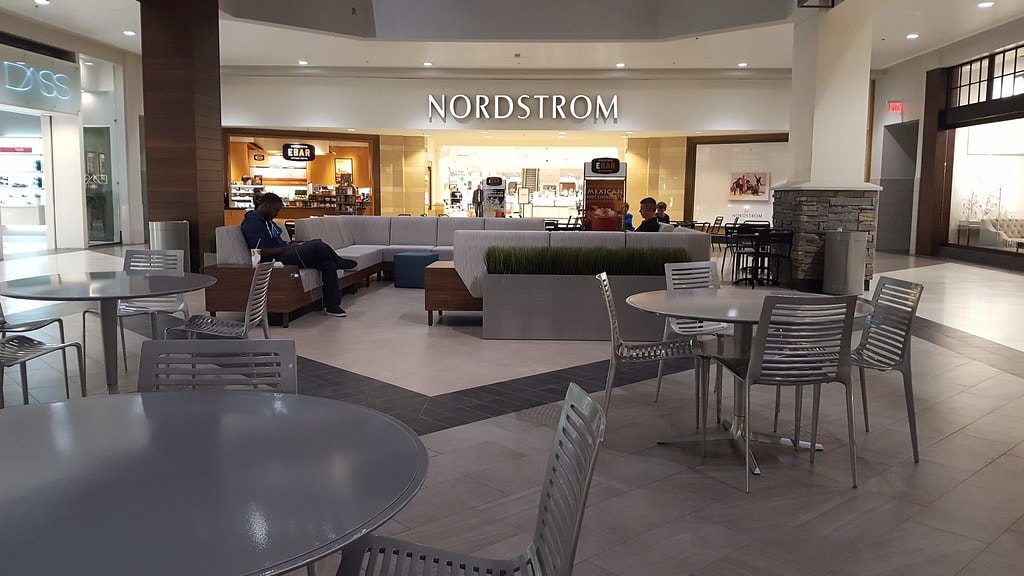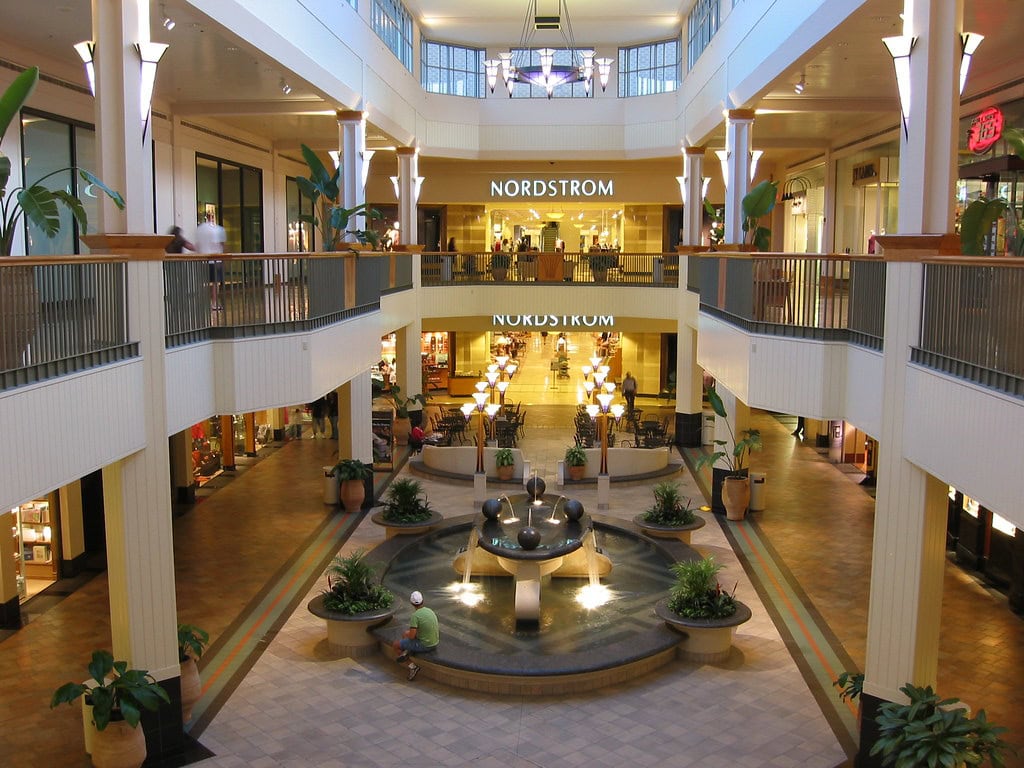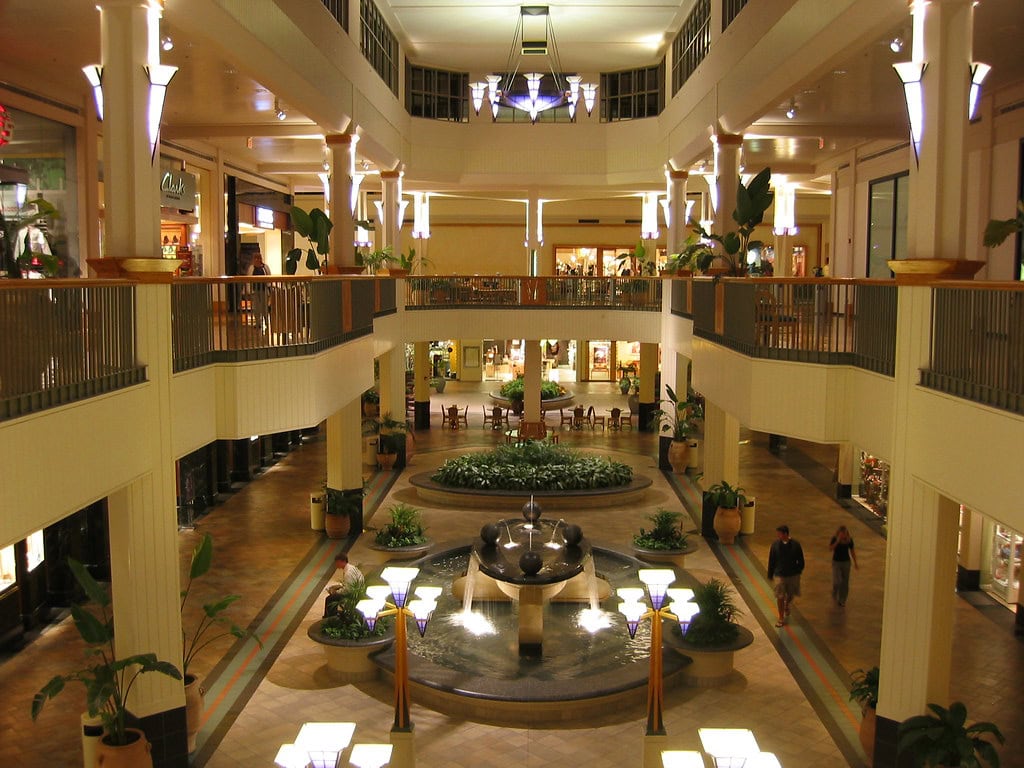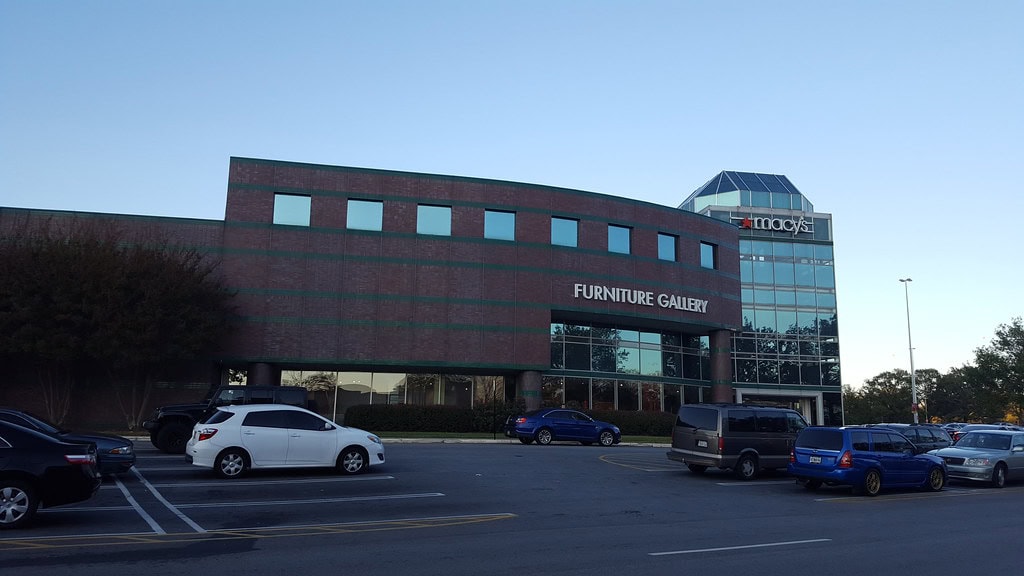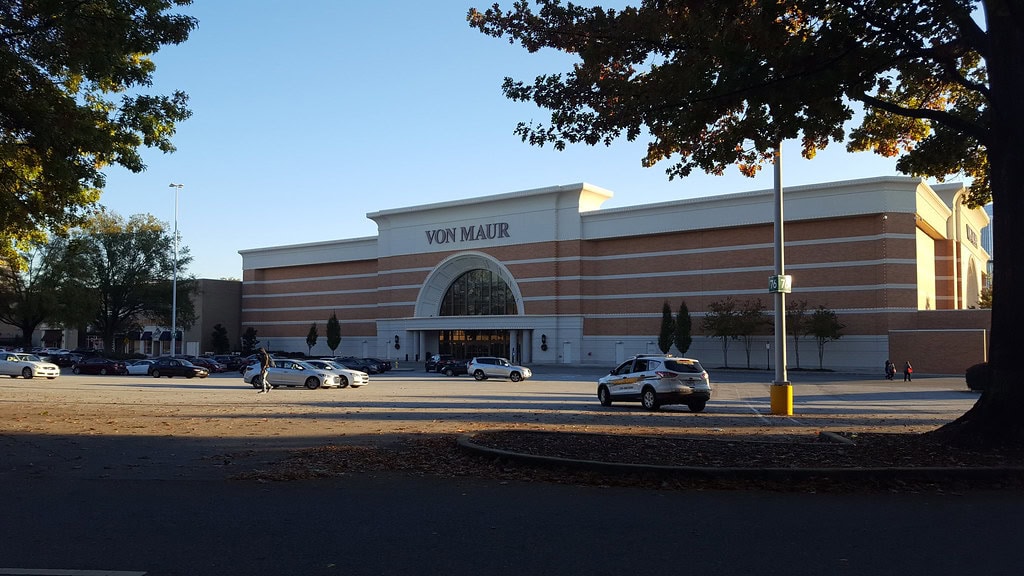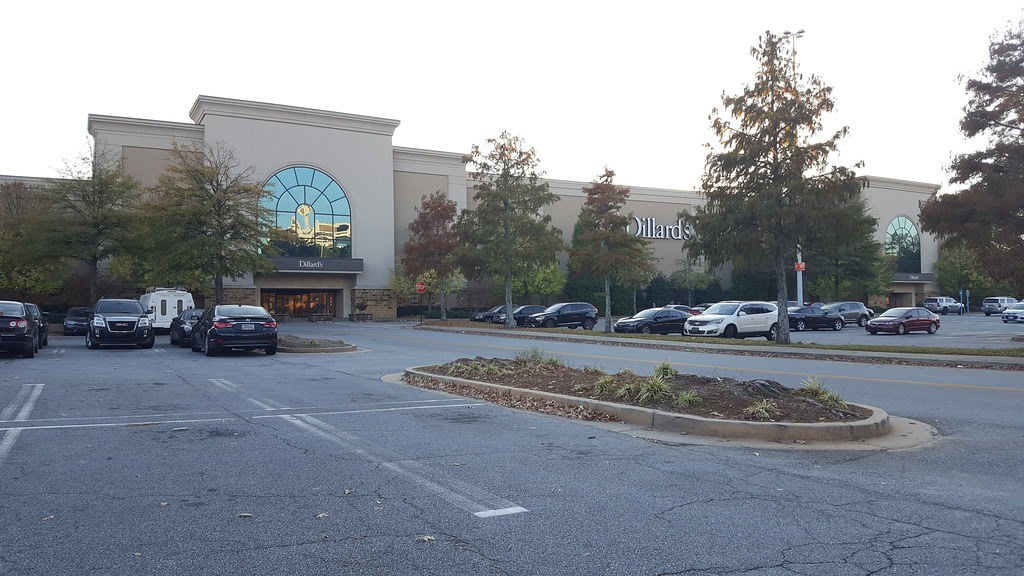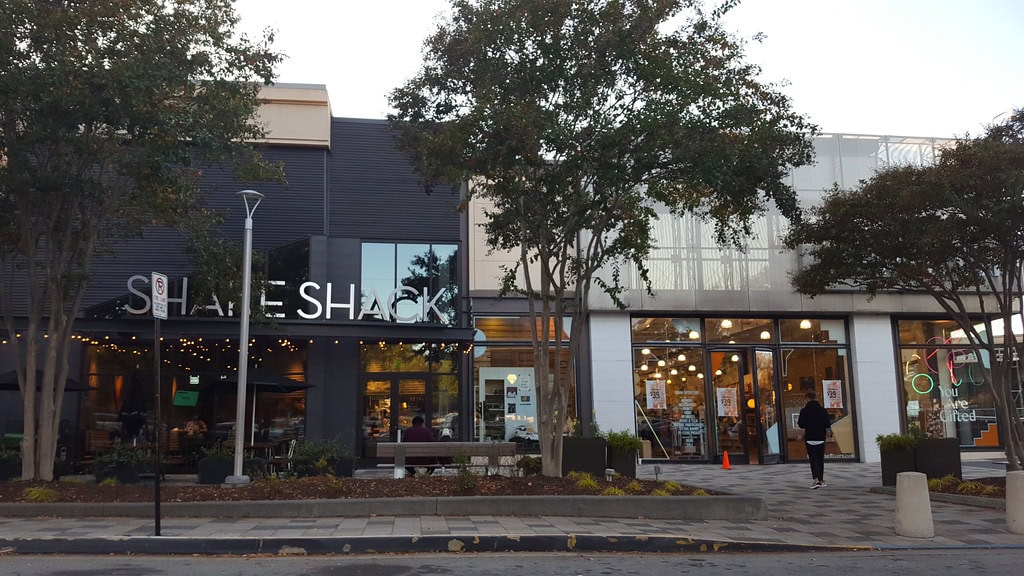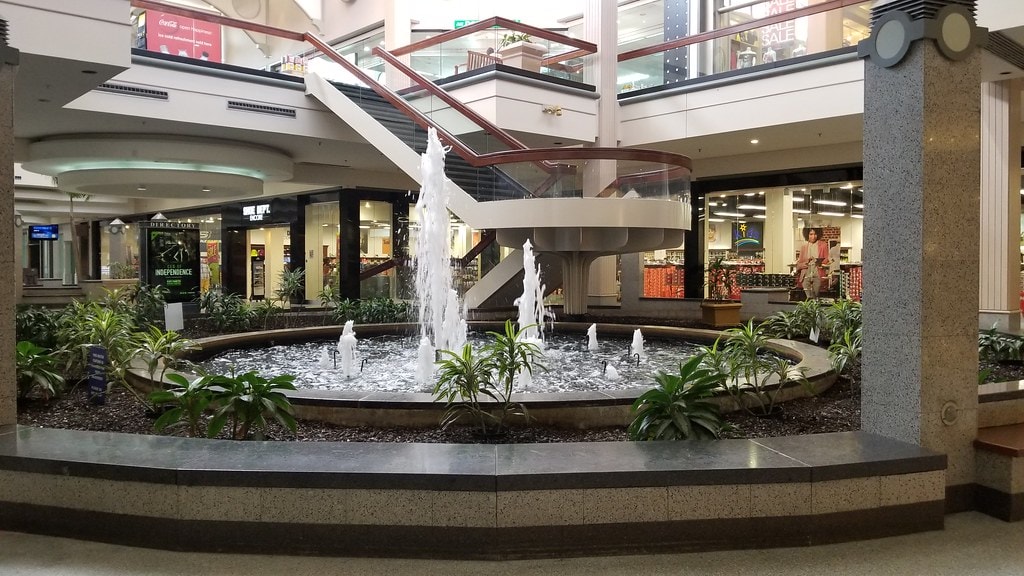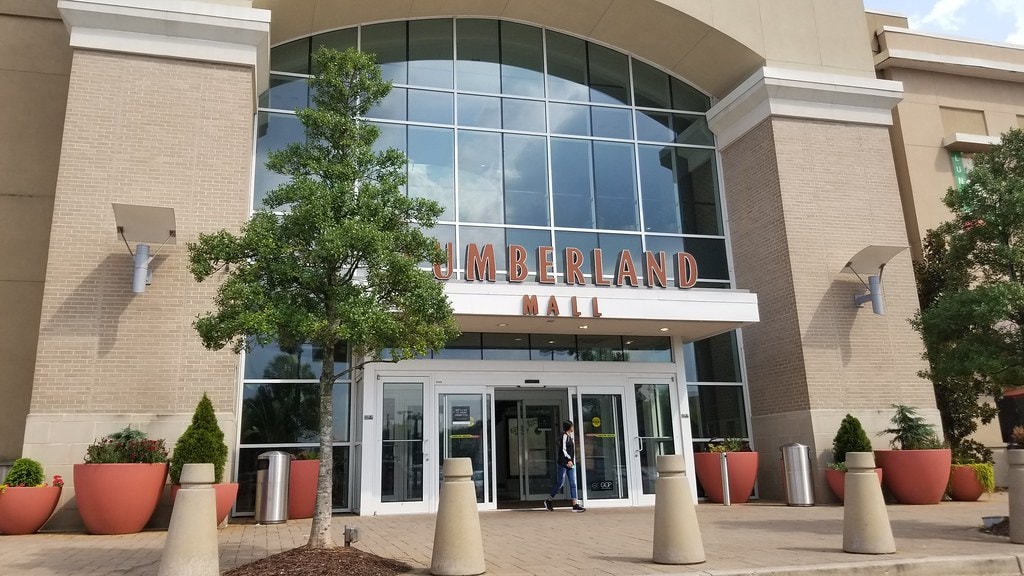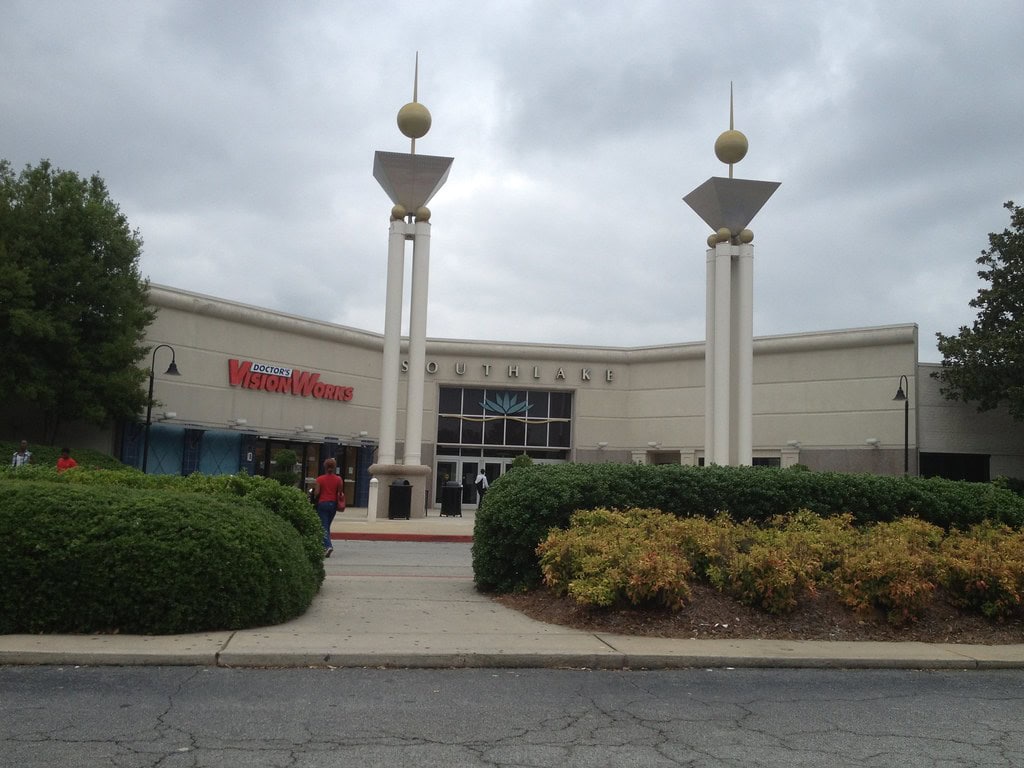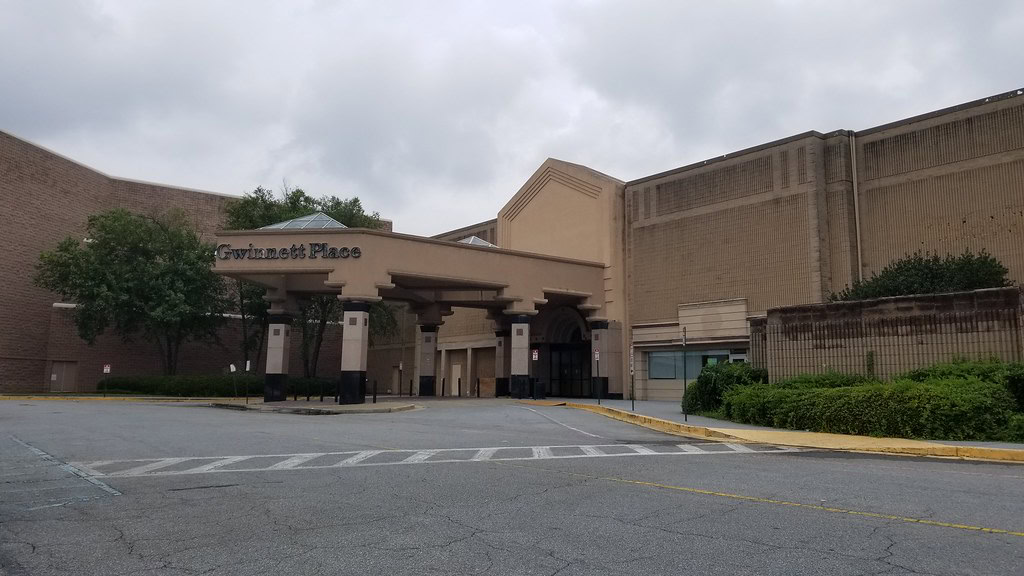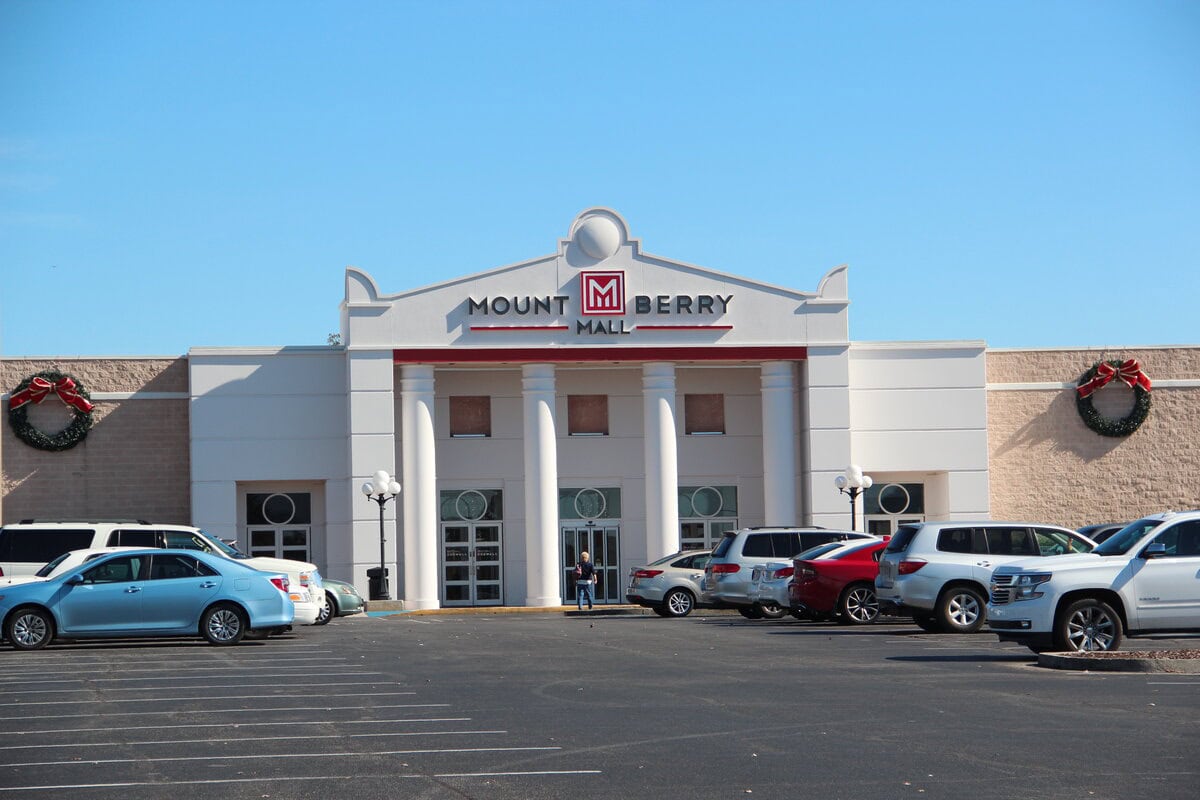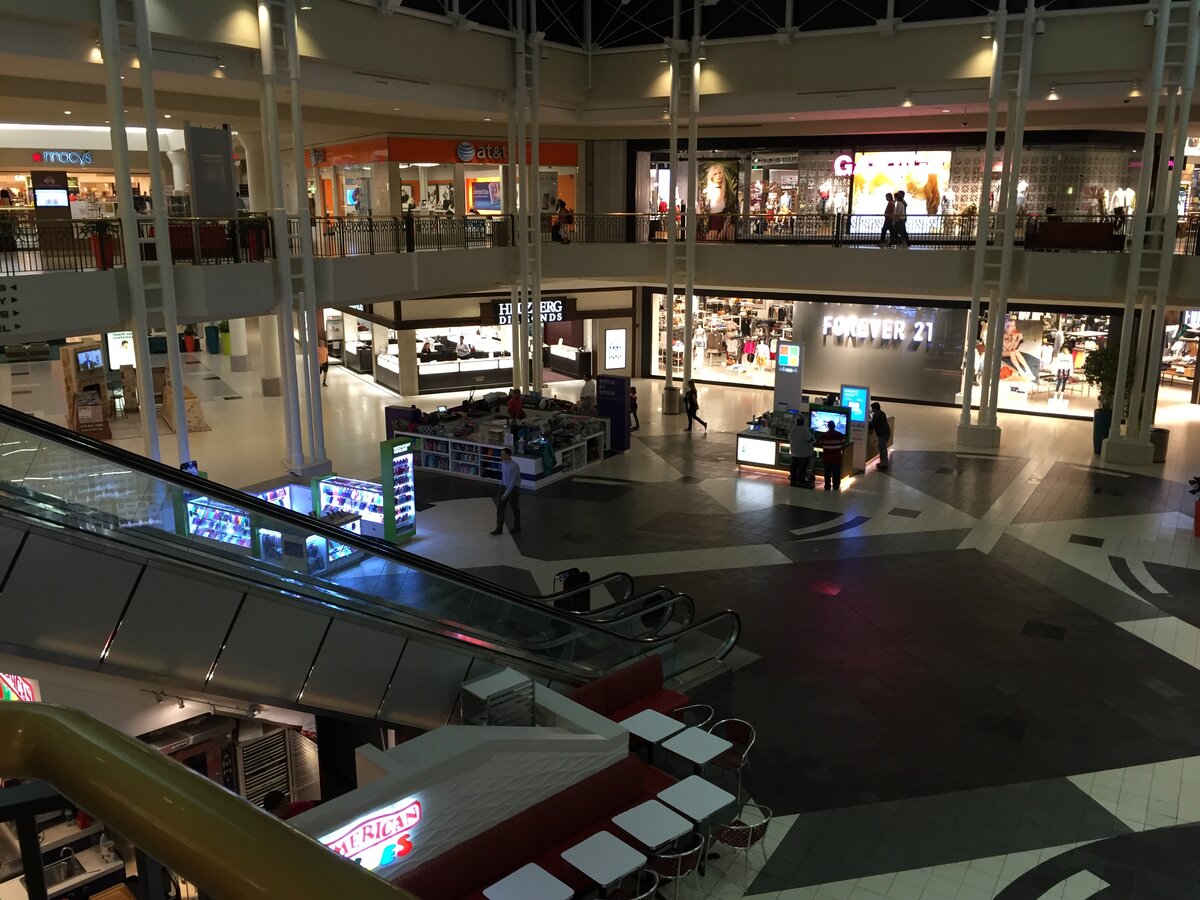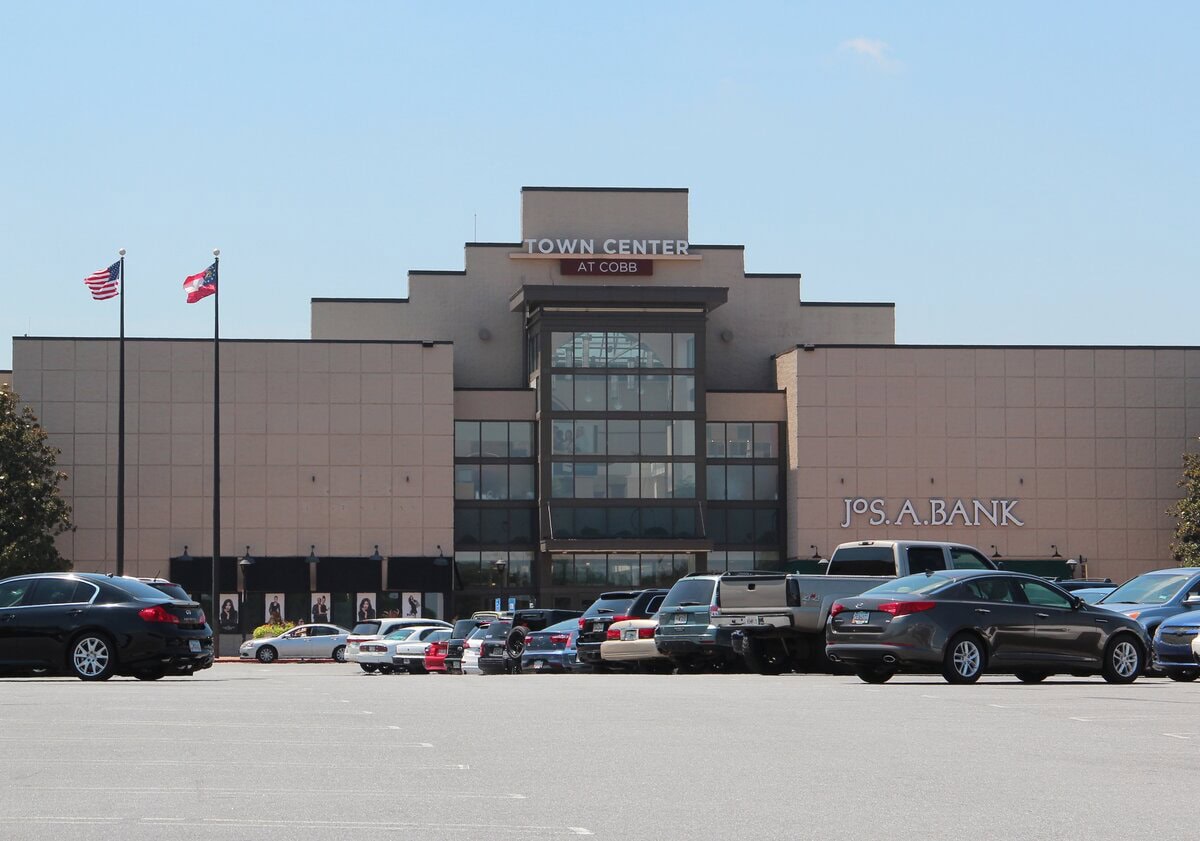Metro Retail Crosses the Line
The address listed Atlanta, but Perimeter Mall was located on the other side of the line, in Dunwoody, outside Interstate 285. The exit dropped drivers into a cleared area of dirt and construction trailers.
What had been Spruill family land turned into parking lots and anchor space. Rich's went up first. JCPenney followed.
That year, 1971, marked the fourth enclosed mall in DeKalb County, following Avondale, North DeKalb, and South DeKalb.
But this one sat farther out past the beltway. Developers called it Perimeter Mall, naming it after the highway it had just jumped.
It looked familiar, same interior layout as Greenbriar Mall. Two levels, big department stores at the ends, neutral tile floors. But its placement meant something else.
It came at the same time as Dunwoody Village. It arrived while the interchange at Georgia 400 was still shaking loose dust.
Nothing about it felt urban. The roads weren't crowded yet. The skyline hadn't pushed that far north. But the doors opened anyway, and stayed open.
For anyone looking up things to do in Dunwoody, Georgia, in the early '70s, there wasn't a long list. This was on it.
Expansions, Incidents, and Brand Plays (1977–1990)
By 1977, the mall had already become a test site. That spring, the first Great American Cookie Company opened near one of the interior walkways.
It was small, barely more than a counter, but its location inside Perimeter Mall turned it into the company's launchpad.
In 1982, construction crews came back to add a new wing.
The extension brought in a third anchor, Davison's, which slotted into the northwest side and changed the mall's footprint into a T. More stores filled in behind it.
Five years later, Davison's carried over to Macy's during the department store consolidations of the '80s.
The floor plan stayed tight, but crowd flow shifted as foot traffic pushed into the new corridor.
Walk-in numbers rose, and so did tenant demand. Retailers kept the storefronts updated. Names changed.
Branding got glossier. That stretch of the '80s was about reworking the insides while leaving the structure alone.
Then, in April 1990, things stopped. Around lunchtime on the 25th, a man with a revolver stepped into the food court.
He opened fire, and one person died. Four others were hit. He surrendered not long after.
Police cleared the area fast, but the mall closed for the rest of the day.
In interviews, shop employees described the sound echoing through the atrium.
The building itself remained largely unchanged afterward. Business resumed and sales returned.
But for those who worked there, the event broke the rhythm. Even regular customers noticed it, for a while, the crowd didn't move the same way.
Flagships, Closures, and Structural Investments (1997–2005)
November 1997 brought a vertical change: a new five-level parking deck opened on the western side, adding capacity and providing space for future expansion.
The next year, on February 20, 1998, Nordstrom opened its first store in the Southeast at Perimeter Mall.
Three stories, 230,000 square feet, with a clean glass entry.
That opening mattered; it gave the mall a higher-tier anchor and pushed its draw radius deeper into metro Atlanta.
In 2000, the Cheesecake Factory opened near the mall's exterior entrance, close to where JCPenney had started.
JCPenney itself shut down that same year. The space didn't sit idle long; developers tore it down and used the footprint to build a new Dillard's.
Construction wrapped by 2005, giving the retailer a full new build.
Ownership shifted during the transition. The Rouse Company sold the property to General Growth Properties in 2003.
It was part of a broader national portfolio move, but locally, the handoff meant fresh capital and tighter asset management.
The stores didn't change overnight, but tenants noticed the updates. Lease terms adjusted. Branding guidelines tightened.
The outside remained familiar, with the same signage and entrance angles, but inside, the balance had started to tilt toward a different kind of mall.
Rebranding, Remodels, and Anchor Trades (2003–2016)
In 2003, the mall's anchor lineup shifted again. Rich's merged into Rich's-Macy's, and the original Macy's location shut its doors.
That space reopened as Bloomingdale's, bringing a new brand name and an updated storefront to the west wing.
For a few years, Rich's-Macy's held the larger footprint.
But by 2005, the Rich's name came off the sign, and the building operated solely as Macy's again.
In 2012, Bloomingdale's exited the market. The space stayed closed for several months before Von Maur began renovations.
The department store opened its new location inside the former Bloomingdale's shell, keeping the anchor slot occupied and current.
The food court got its own round of updates in 2013. Chipotle moved in alongside existing tenants.
The flooring was redone, and seating areas shifted to reflect updated traffic flow.
By 2015, crews were back inside. Work began on ceramic floor replacements.
The mall updated its lighting, added modern benches, installed new restroom finishes, and replaced decades-old signage.
Some of the original 1970s details came down. The new interior leaned toward neutral tile, dark wood tones, and simplified storefronts.
Location as Leverage in Regional Expansion (1996–2023)
Years before those upgrades, MARTA's Dunwoody Station opened in 1996.
The entrance sat at the corner of the mall's southwest parking lot, near the outparcel stores.
It gave commuters a new way in, especially for weekday traffic. Shoppers stepped off the platform and crossed into the food court within minutes.
Perimeter Mall used that access point well.
The property sat near the crossing of Georgia 400 and Interstate 285, a junction that fueled the broader growth of Perimeter Center.
The mall helped anchor that district. Its tenant list became part of the area's real estate pitch, especially for nearby office leases.
While other malls in the region started losing ground, Perimeter held on.
It filled vacancies with newer brands and adjusted square footage to meet retail demand.
Leasing announcements reflected that pivot.
The roster shifted over time, but the categories stayed balanced: apparel, eyewear, tech accessories, and restaurants.
By 2023, the post-lockdown tenant list included Mango, Lovisa, Psycho Bunny, Ubikwitas7 World Of Hats, Fabletics, and Warby Parker.
Each store filled a different stretch of the upper and lower concourses.
Some took over former national chain locations, others slotted into smaller custom buildouts.
Brand Turnover and Temporary Activations (2024–2025)
By early 2024, Perimeter Mall started showing up in film credits.
Scenes from the Christmas action movie Red One were shot on location inside the mall that winter.
Crews came through with lighting rigs and backdrops. Storefronts stayed open while extras moved through the main level.
Production didn't shut down operations, but it pulled plenty of attention.
More eyes landed on the mall again in August 2025. Shein opened a weekend pop-up just off the Macy's corridor.
Lines wrapped through the walkways before doors opened.
Inside, shoppers pulled clothes from racks and dropped them into clear bags.
The activation ran for four days and drew walk-ins from other wings of the building.
That same week, POP MART announced its first Georgia location would land at Perimeter Mall.
The company took over the space where Lolli & Pops had operated, near the main interior loop.
The store would stock designer vinyl collectibles and branded capsule machines.
While no opening date was listed, promotional material went up behind the construction wall by mid-August.
LEGO followed with its own announcement on August 12. The brand plans to open a permanent store on the second floor, between Journeys and Express.
Across from American Eagle, the footprint slotted into a space that had flipped tenants several times over the last five years.
Ownership, Layout, and Operational Scale (Present Day)
Perimeter Mall operates under Brookfield Properties, which owns and manages the full retail footprint.
The building includes two levels throughout the main concourse, with three in each of the four anchor stores.
Those anchors now include Macy's, Nordstrom, Dillard's, and Von Maur. Each one pulls its own customer type.
The total property includes space for over 150 retail stores.
Across the lot, there's parking for about 7,700 vehicles. One of the main garages stacks five levels high.
The site still connects to Dunwoody Station, with MARTA's Red Line linking in from the southwest corner of the property.
Storefront layouts vary. National brands run long units along the walkways, while local and regional names split the smaller spaces between anchors.
Some tenants lease interior-only footprints. Others run dual entrances, opening to the exterior and the concourse.
The building itself sits just inside DeKalb County lines, despite using an Atlanta postal address.
The Perimeter Center district wraps around it. Office towers and hotels fill the surrounding blocks.
Retail sales stay strong year-round, with traffic peaks during school breaks, holiday runs, and seasonal brand drops.

